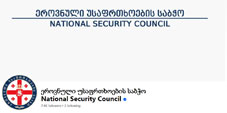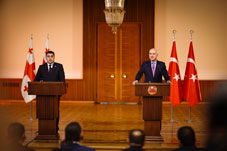GD Parliament to Abolish National Security Council

The dissolution of the Council is scheduled to be finalized by September 1. Its responsibilities will be taken over by the government. In a press release, the administration stated that the changes align with Georgia's parliamentary governance model.
According to the government, the NSC's apparatus and assets, including oversight of the National Situation Room, will be transferred to relevant agencies through a liquidation commission.
The NSC was established in 2019 following the adoption of Georgia's new constitution, which eliminated the previous presidentially led security council. Its permanent members include the Prime Minister, ministers of Defense, Interior, Foreign Affairs, and Finance, along with the heads of the State Security Service and Intelligence Service, and the Chief of the Armed Forces. Interior Minister Vakhtang Gomelauri had served as Secretary of the Council since 2020 until his resignation on May 28 amid a wider cabinet reshuffle.
The decision to dismantle the NSC has drawn criticism from opposition politicians. Security expert and opposition figure Teona Akubardia described the Council as a vital structure for national security planning. Writing on Facebook, she accused Georgian Dream chairman Irakli Kobakhidze of undermining national security for political motives. She claimed the government's actions serve the interests of Bidzina Ivanishvili, the party's influential founder.
Akubardia warned that both moves are harmful to Georgia's national security and accused the government of acting under the influence of the Kremlin.
Papuashvili Visits Ankara to Deepen Strategic Ties

"In today's turbulent reality, the relationship between our countries, which strengthens year by year, is particularly valuable," Papuashvili stated. He noted that the meeting covered a range of key topics, including enhancing parliamentary cooperation and collaboration in the fields of economy and education. The two leaders also discussed shared efforts to promote peace and stability in the Caucasus.
A focal point of the discussions was the Middle Corridor, which Papuashvili described as a symbol of the region's shared future. He highlighted its role in connecting Europe and Asia through economic cooperation, energy security, digital connectivity, and sustainable development, and affirmed Turkey's importance in realizing the route's full potential.
